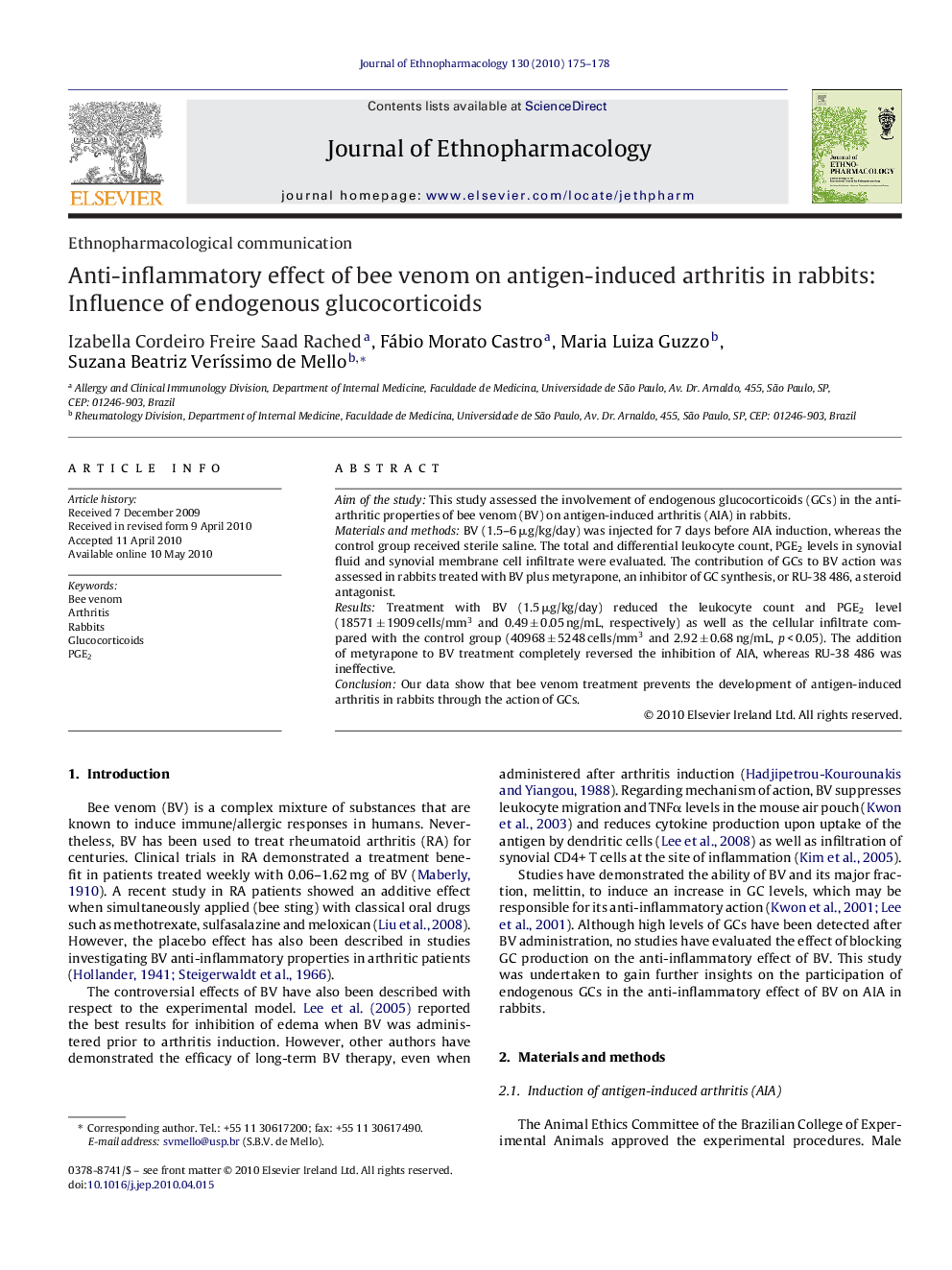| Article ID | Journal | Published Year | Pages | File Type |
|---|---|---|---|---|
| 2546445 | Journal of Ethnopharmacology | 2010 | 4 Pages |
Aim of the studyThis study assessed the involvement of endogenous glucocorticoids (GCs) in the anti-arthritic properties of bee venom (BV) on antigen-induced arthritis (AIA) in rabbits.Materials and methodsBV (1.5–6 μg/kg/day) was injected for 7 days before AIA induction, whereas the control group received sterile saline. The total and differential leukocyte count, PGE2 levels in synovial fluid and synovial membrane cell infiltrate were evaluated. The contribution of GCs to BV action was assessed in rabbits treated with BV plus metyrapone, an inhibitor of GC synthesis, or RU-38 486, a steroid antagonist.ResultsTreatment with BV (1.5 μg/kg/day) reduced the leukocyte count and PGE2 level (18571 ± 1909 cells/mm3 and 0.49 ± 0.05 ng/mL, respectively) as well as the cellular infiltrate compared with the control group (40968 ± 5248 cells/mm3 and 2.92 ± 0.68 ng/mL, p < 0.05). The addition of metyrapone to BV treatment completely reversed the inhibition of AIA, whereas RU-38 486 was ineffective.ConclusionOur data show that bee venom treatment prevents the development of antigen-induced arthritis in rabbits through the action of GCs.
Graphical abstractFigure optionsDownload full-size imageDownload as PowerPoint slide
